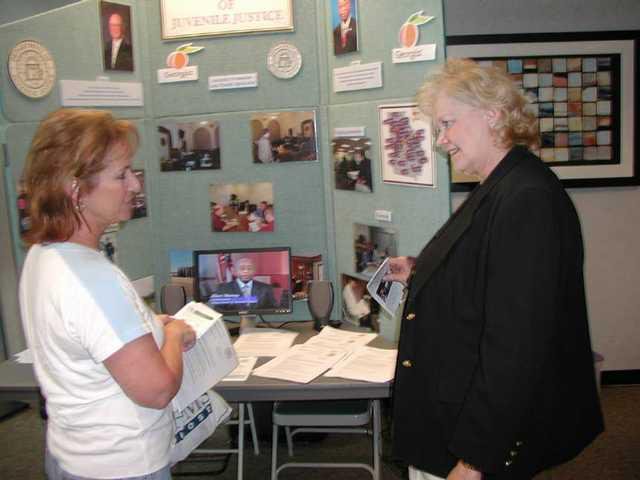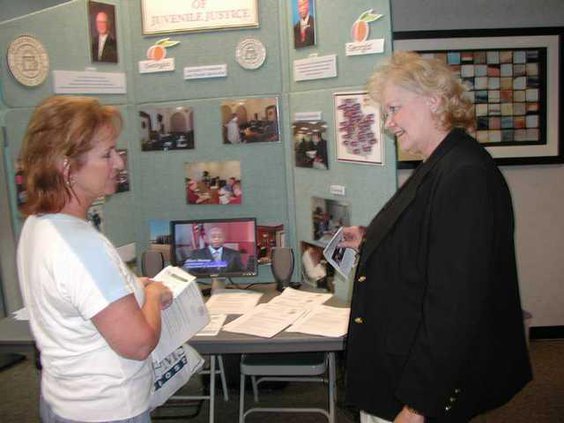But a report about a survey of economic analusts released Monday by the National Association for Business Economics, has at least a little good news:
"The survey suggests cautious but still positive hiring plans for the next six months, with more firms expecting to increase payrolls than reduce them."
So area governments are putting opportunities in place now to help people find jobs.
A Liberty-Long Employer job fair on May 15 was at the Hinesville campus of Savannah Technical College.
Holly Brown-Stevens, committee head for the year fair, said it was the first time they used a college facility.
"We thought we'd move it to the college because...we could target the students and the facility was large enough for the community," she said.
She explained that other plans are in the works for seminars, an open forum for job seekers who have questions and a mock interview session.
Brown-Stevens said another career fair will "definitely" be held this fall.
"We felt that since some of our troops are trickling back in slowly that it would be a good opportunity for spouses," she explained.
In addition to helping the job seeker, she said job fairs benefit companies and businesses.
"I think that it's important that we're visible and the employers have the opportunity to get the word out about positions that they have open," Brown-Stevens said.
The state's Department of Juvenile Justice was represented by Linda Julian, who spoke with a number of fair participants.
She told prospects about the different backgrounds the DJJ was looking for.
Besides corrections, the agency talked to people about nursing and administrative positions.
"Sometimes they're surprised that we have a fully staffed medical clinic at our facilities," Julian said.
She thought job fairs serve a function.
"I think that it's important for us to go out in to the community and let them know what is available," she said.
Even if attendees did not land a job through the fair, it provided them with job search skills they can use in the future, according to Brown-Stevens.
"Hopefully they'll take away experience as far as knowing how to communicate with an employer, how to dress professionally," she explained.
Brown Stevens said the job fairs augment the "normal recruitment avenues," employers have through newspaper advertising and the Internet.
Raquel Washington attended the fair after seeing it online.
She came prepared with several resumes to gove to employers, but left with more copies than she planned.
"It's a little bit less than I thought," she said. "I thought it was bigger than this."
She recently went to another job fair in Reidsville with not only more employers, but more people looking for jobs. Washington thought the low attendance at the Liberty-Long fair was because a lot of people did not know about it.




